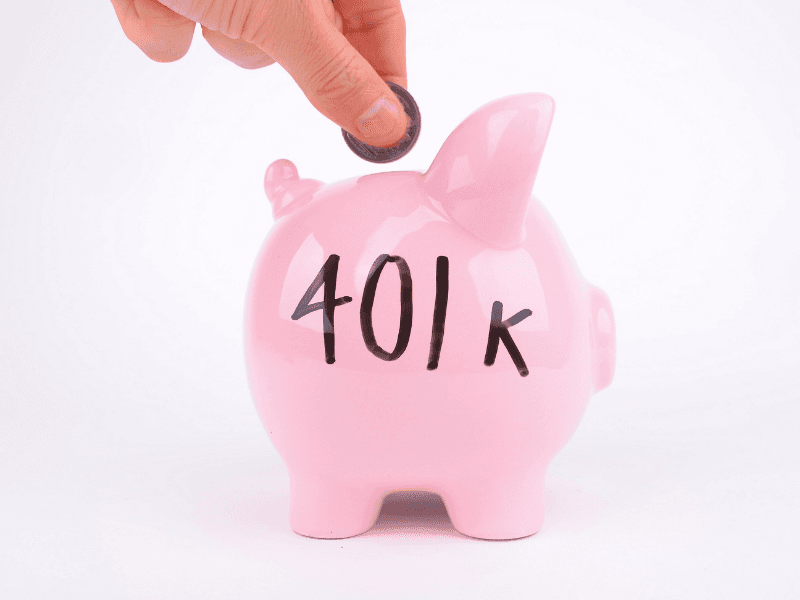8 Steps for How to Buy a House With Bad Credit
Buying a home with bad credit can be difficult, but it is not impossible.
A lot of people with bad credit don’t even bother applying for a mortgage because they don’t think they’ll be approved.
The good news is it's possible to qualify for a mortgage and purchase a home even if you have less-than-perfect credit. Here, we'll cover the options you should consider and explain how to buy a house with bad credit.
What is a Bad Credit Score?
There is no set minimum credit score that you need to qualify for a mortgage. Lenders have their own requirements for conventional loans, and the details of government-backed loans can vary.
While there are no hard and fast rules, you'll generally need a credit score of at least 500 to qualify for a mortgage of any type. If your score is 500-620, you may be able to be eligible for specific types of mortgage loans backed by the Federal Housing Administration (FHA) or the Department of Veteran's Affairs (VA).
With a score above 620, you may be able to qualify for a conventional loan or a USDA loan, although your odds of approval will increase significantly with a credit score of 700+.
In this article, we're covering the options for anyone with a credit score in the 500-700 range. If your score is below that range, you're unlikely to qualify for any mortgage until your score improves. If you're above that range, your credit score is average or above average, and you'll have more options.
How to Buy a House With Bad Credit
If you have a below-average credit score, here are the specific steps you should take to get approved for a mortgage and purchase a home.
1. Know Your Credit Score
The first thing you should do is check your current credit score. Mortgage lenders will be pulling your credit report when they evaluate your creditworthiness, so it's best to know what they will see. Knowing your current score will help you to understand the specific options available to you.
You can get a free copy of your credit report from AnnualCreditReport.com. However, these free reports do not include your score. It's a good idea to check your reports from Experian, Equifax, and TransUnion to ensure there are no inaccuracies, but you'll need to get the credit score elsewhere.
With a free Credit Karma account, you'll be able to see your current credit score. You'll also get free basic credit monitoring, and you'll be able to keep tabs on your score as it changes.
2. Understand the Different Types of Mortgages
There are several different types of mortgages, and each one has a specific purpose. The types of mortgages you may want to consider include:
Conventional
Conventional loans are not backed or insured by the federal government. Each bank or lender will have its own requirements, but in general, you'll need a credit score of at least 620 (a 700+ score is more ideal). The lender will also consider other factors like your income, down payment, and debt-to-income ratio.
See our Conventional Mortgage Calculator to determine what you can afford.
FHA
FHA loans are backed by the Federal Housing Administration, which makes them less risky for lenders. As a result, you may be able to qualify for an FHA loan with a credit score as low as 500. With a low score, you might need to make a 10% down payment. However, with a credit score of 580 or above, you may be able to get approved with a smaller down payment.
If you're a first-time home buyer, an FHA mortgage may be an ideal choice. The credit score requirements are much lower than conventional loans, but some additional requirements and stipulations come with an FHA loan. For example, the home has to be your primary residence. There are also stricter requirements related to the house itself, and additional details may be required as part of the home inspection.
See our FHA Loan Calculator to determine what you can afford.
VA
VA loans are backed by the Department of Veteran's Affairs and are an option for veterans, active members of the military, and their spouses.
A VA loan could be a very attractive option if you meet those requirements since it allows you to purchase a home with no down payment. The interest rates also tend to be competitive.
The lender handles the approval process, and no specific minimum credit score is set. However, VA loans tend to be a better option than conventional loans if you have bad or damaged credit.
See our VA Loan Calculator to determine what you can afford.
USDA
The US Department of Agriculture backs USDA loans and you may be able to qualify if you're purchasing a home in a rural area. Like VA loans, it's possible to buy a house with no down payment through a USDA mortgage.
The downside is, most lenders require a 600+ credit score for a USDA loan.
See our USDA Loan Calculator to determine what you can afford.
3. Find the Right Lender
Once you know the types of mortgages that may be appropriate for you, it's time to find a lender. Some banks and lenders specialize in specific types of loans, so you may want to search for a lender based on the type of loan or mortgage you want.
Another option is to use a mortgage broker who will match you with the appropriate lender.
4. Know How Much You'll Need for Closing Costs and a Down Payment
To know how much you can spend on a house, you'll need to consider the upfront costs as well as the ongoing monthly costs. Of course, the down payment is the most obvious upfront cost, but there are many other closing and settlement costs. These costs may be wrapped into the loan, but they'll impact the size of the loan.
See our Down Payment Calculator and our article on closing costs for more details.
5. Get Your Paperwork in Order
The mortgage application process involves a lot of paperwork. The process is faster and smoother if you have things in order ahead of time. That way, you're not held up, and you're able to move quickly if needed.
While the details will vary depending on the lender and the type of loan, you'll generally need:
- Recent bank statements
- Pay stubs for income verification
- Your most recent tax returns
Go ahead and get this paperwork together ahead of time to speed up the process.
6. Get Pre-Approved
Before you start looking at homes, it's a good idea to have pre-approval from a lender. Pre-approval will allow you to work with the lender to find the appropriate type of loan and determine how much you can borrow and how much you'll need to put down.
By getting pre-approved, you'll be able to know the price range for houses you can purchase, and you'll be able to make a stronger offer (buyers will have more confidence if you can show pre-approval for the mortgage).
7. Make Sure You Have an Emergency Fund for Unexpected Expenses
Covering the down payment, closing costs, and ongoing monthly payments are essential, but there will always be unexpected expenses that arise as a homeowner. Be sure you have an emergency fund to cover something unexpected.
8. Be Patient and Persistent in Your Search for a Home
Finding the right house isn't easy. It might take some time, and you may need to look at many homes, but don't rush the process and make a decision you'll regret later.
Final Thoughts
If you have damaged credit, you should be working to improve your credit score, which will open up more options for you. However, you may not have time to wait for your score to improve. If you need to buy a house with bad credit, it is possible, and we've covered the best options here, including FHA and VA loans.








